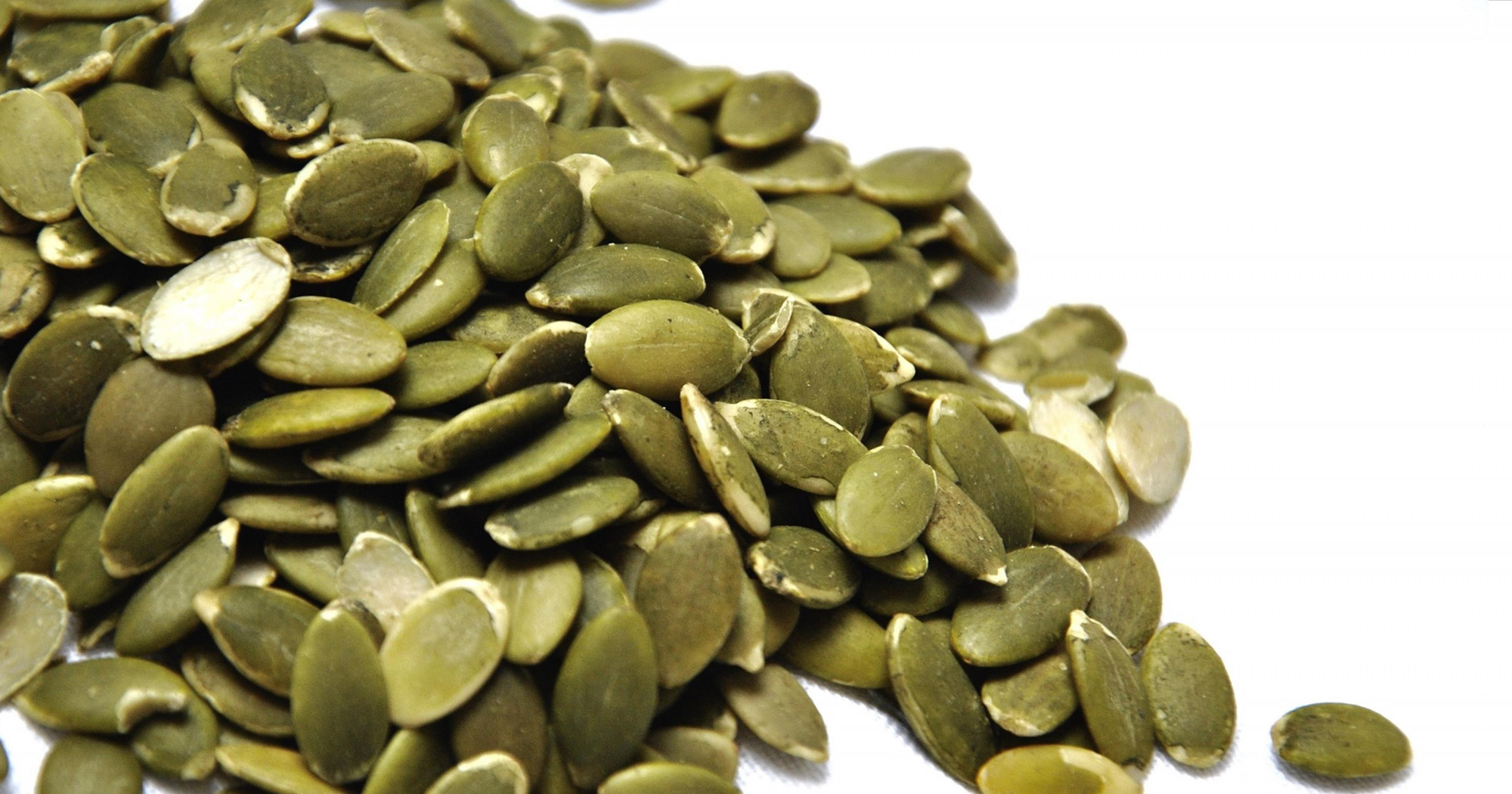Pumpkin seeds

A great source of iron, zinc and protein, pumpkin seeds also contain an extra dose of vitamin K and magnesium. We need vitamin K for healthy blood clotting, our immune system and bone maintenance. Magnesium has a range of important functions in the human body, including nerve and muscle signalling, bone metabolism and the functioning of healthy blood vessels.
Pumpkin seeds are bursting with antioxidants such as carotenoids, which have health-protecting properties. And, just like sesame seeds, pumpkin seeds contain lignans which can help to prevent certain types of hormone-sensitive cancers.
And that’s not all! The nutrients in pumpkin seeds seem to work especially well together for certain health conditions and regular consumption may help the treatment of prostate and urinary conditions, such as benign prostate hyperplasia.
All nuts and seeds are a great source of protein but pumpkin seeds have an added bonus – they are a rich source of tryptophan, one of the essential amino acids that form the building blocks of protein. Your body converts tryptophan into serotonin – a hormone that helps you feel and sleep better. So munch away!
When it comes to pumpkin seed oil, it can be a welcome addition to your diet as it is rich in antioxidants and contains small amounts of the same nutrients the seeds contain. Never heat the oil as it destroys some of its goodness – it’s best used in salads or drizzled over a meal just before serving. One teaspoon per portion is enough!
Roasted or not?
Roasting can degrade the good fats in seeds and potentially create unhealthy fats if the exposure to high heat lasts long enough. Be cautious of commercially produced roasted seeds as they are often cooked in cheap, unhealthy fats. There’s no doubt you’re best off with unroasted ‘raw’* seeds but if you prefer the roasted taste, choose dry roasted or roast them briefly yourself on a dry pan.
*Many nuts and seeds are briefly exposed to a higher temperature (pasteurised) to destroy potential pathogens so are not technically raw unless clearly labelled. Fortunately, this process doesn’t destroy the good fats.




